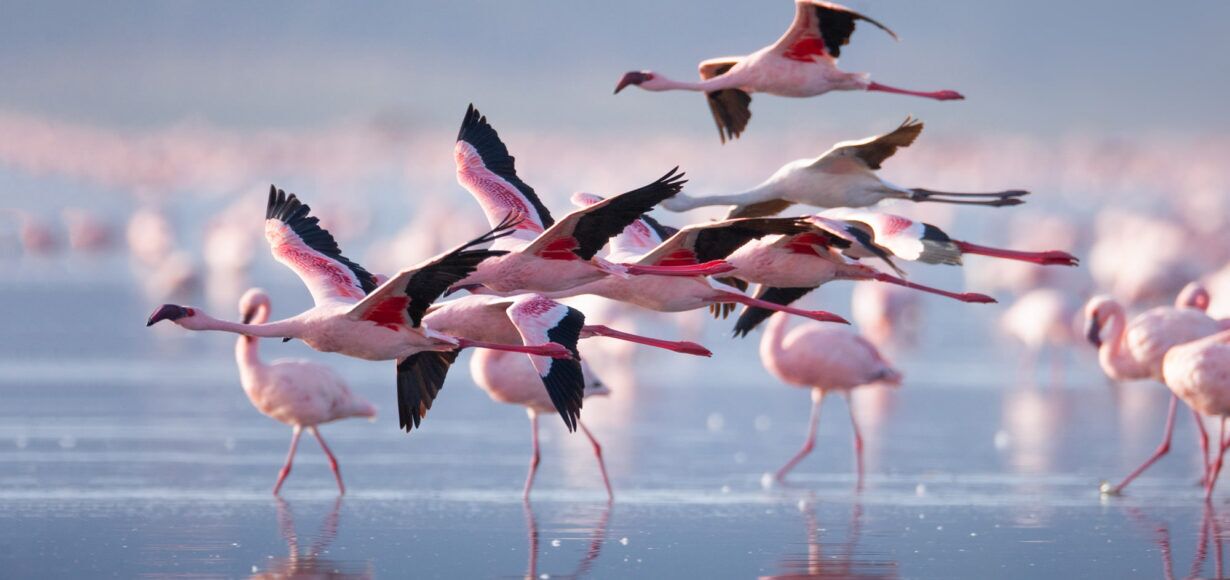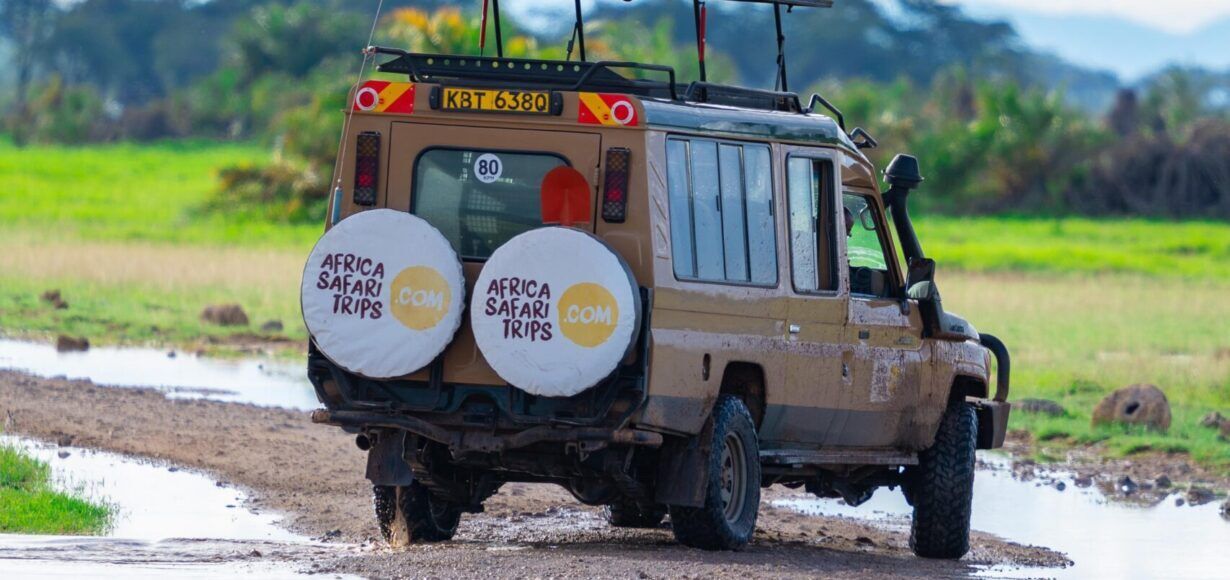Travel advice for South Africa
South Africa is a destination that offers the most extensive variety of breathtaking experiences, combined with First World infrastructure. As it’s the most ‘western’ country on the African continent, the culture shock won’t be too big. Nevertheless we put together some advice for your trip to South Africa, so you can step into the plane with a peaceful mind and only think about the beautiful wildlife adventures that await you!
Take your pills (if you go to Kruger or Mapungubwe)
There are no compulsory vaccinations required when entering South Africa. Also, there is no yellow fever disease in South Africa, and you can’t contract it there. All travellers should obviously be up to date on their normal routine vaccinations, but to make it easy, no documentation is needed when crossing the South African border.
Malaria is only a risk in three provinces of South Africa and only from October to May. Kruger National Park and Mapungubwe National Park are the only parks in that area so if one of these is on your itinerary, it’s advisable to take malaria prophylaxis medication, wear long sleeves and trousers after sunset and use insect repellents. Our lodges in malaria-prone areas are usually equipped with mosquito nets.
No visa needed
If you’re travelling with a European Union, American, British or Canadian passport, you do not need a visa to visit South Africa. This is, as long as your trip is for tourism or business and doesn’t last more than 90 days. Make sure not to overstay, or you will be put on the non-wanted list for the next five years. And that would be a pity because you’ll definitely want to come back 🙂
English will take you a long way…
South Africa is called ‘the rainbow nation’ for all the right reasons, and with no less than 11 official languages, it’s a melting pot of different cultures and ethnic traditions. Zulu and Xhosa are the most widely spoken languages amongst the black communities, and Afrikaans still is the first language of about 7 million South Africans (mainly white and coloured). While most South Africans can communicate in more than one language, English is the most commonly spoken and the language of official business and commerce.
If you’re keen on communicating with the locals, you can start with some magic words 😊

Hello auntie!
It’s important to be aware of the diversity of traditions and practices regarding etiquette in South Africa, and etiquette can vary between different ethnicities, linguistic groups and religions. In general, our European rules of etiquette apply. Don’t overstay your welcome, don’t yawn without covering your mouth, don’t point or stare at people, don’t spit or burp in public and always express your gratitude (or pay a compliment to your hosts). When it comes to dining etiquette, white South Africans usually eat using a fork and knife (continental style), while black and Indian South Africans often eat with spoons or with their hands. Both are totally fine. A few things to remember though;
- Show heightened respect to anyone older than you in all situations. When a person is 10 years older than you (or more), use the polite form to address them. It’s extremely disrespectful not to. You can address the older person as oom/uncle (male) or tannie/auntie (female). It may sound weird but South Africans will appreciate you even more when you apply this unwritten rule.
- It is common to tip about 10 to 12% on bills in South Africa, and tips are usually not included in the overall bill. The tip will be included if you have negotiated payment beforehand (such as for a taxi fare). In all other cases, add the tip (or ‘gratuity’) to your bill. Some (more fancy) restaurants will include the tip in the total amount but in that case, it’s stated on your bill, so check your slip!
Stay safe
Is South Africa safe to travel to? Our answer is clear: YES!
South Africa is considered generally safe for tourists. The areas where visitors typically stay – Cape Town’s city centre and inner suburbs, the Cape Winelands, the Garden Route and the safari destinations – are among the safest in the country.
But even so, it is worth staying vigilant as you would in any other city you’re not familiar with, especially at night. And every traveller knows that it’s best not to leave valuables in the car. On that note… Don’t forget to close your car windows! Baboons will definitely read an open window as an invitation to climb in and steal anything that catches their eye 😁.
A good general rule is to ask your guide or your travel consultant about a place you’re interested in visiting — they’ll have a much better idea of whether it’s safe at the current time and they’ll advise a safer alternative if necessary.
Know the time difference
The perks of travelling to South Africa? No jet lag, and no need to put your alarm clock to call the family back home! Europe and South Africa have equivalent time zones. South African time is ahead of Central European Time by 1 hour in winter (and 2 hours ahead of the United Kingdom), from the last Sunday of October to the last Sunday of March. During the rest of the year, when daylight saving time applies in Europe, there is no time difference whatsoever!
Money in hand
The South African Rand (ZAR) is the official currency in South Africa. Dollars are not accepted. To convert to euros, you can divide by 20 and be pretty close. But check the conversion rate before you leave because the currency is very volatile.
Card payments are widely accepted and even preferred. You can use your normal bank debit card, just inform your bank to activate world coverage. It’s advised to carry some Rand in cash for small purchases and tipping. ATMs allow you to draw cash with your foreign debit or credit card.

Safety First: Don’t forget your Travel Insurance
When it comes to embarking on your dream adventure to South Africa, your safety is our top priority! That’s why we urge all travellers to ensure they have comprehensive travel insurance in place before setting off. While Africa Safari Trips doesn’t provide travel insurance directly, we’re delighted to recommend Chapka Travel Insurance as your go-to provider for your upcoming trip.
With Chapka, you can rest assured that you’re fully covered for every aspect of your journey, from unexpected medical expenses to trip cancellations. Their personalised service means you only pay for what you truly need, giving you peace of mind to immerse yourself in the wonders of South Africa. So, before you pack your bags and set off on your safari, remember: Safety First. Don’t forget your travel insurance with Chapka.

Fun Fact
Punctuality varies between different communities. White and Asian South Africans tend to follow Western norms of punctuality, while black and bi-racial South Africans are more likely to follow ‘African time’. South Africans often use the phrases ‘now-now’ or ‘just now’. ‘Now-now’ refers to doing something very shortly (almost immediately), whereas ‘just now’ means to do something in the near future, but there’s no guarantee as to how many hours you’ll have to wait 😀
Still have questions? For more information you can always contact us.



